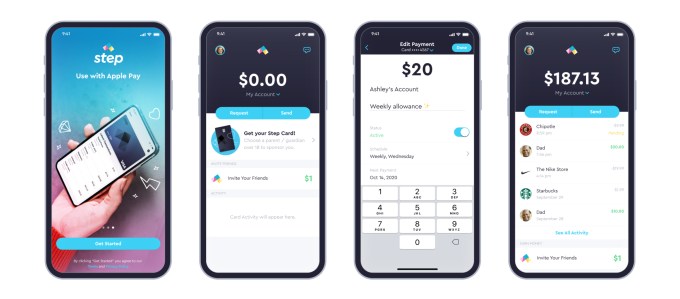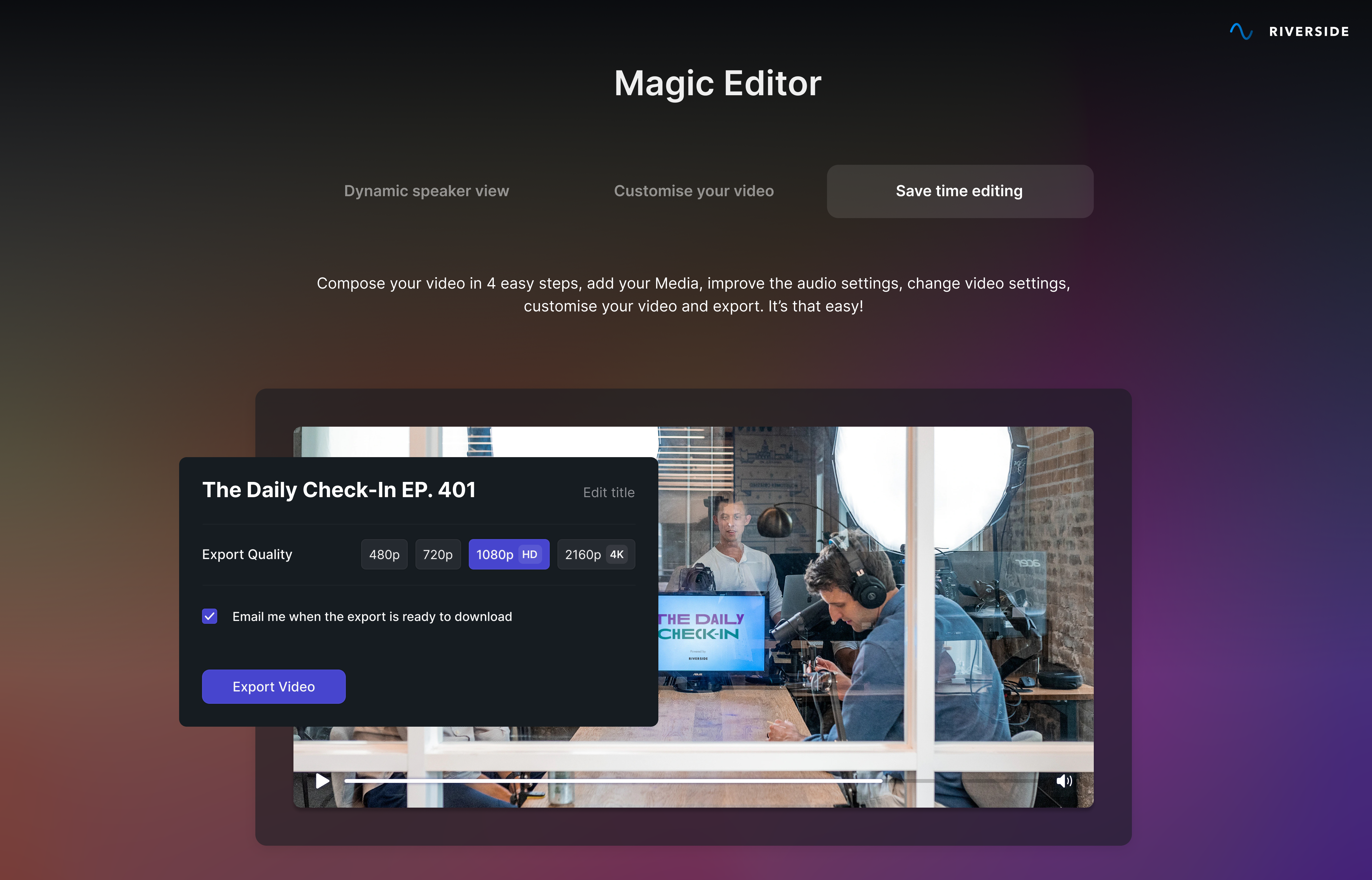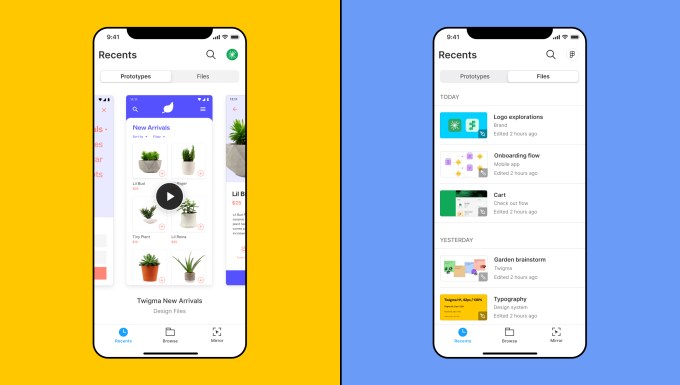Apps
Auto Added by WPeMatico
Auto Added by WPeMatico
German startup Vivid Money has raised a new $73 million Series B funding round (€60 million) led by Greenoaks, with existing investor Ribbit Capital also participating. Following today’s funding round, Vivid Money has reached a valuation of $436 million (€360 million).
Vivid Money could be considered as a Revolut competitor designed specifically for the Eurozone. Built on top of Solarisbank for the banking infrastructure, the company lets you send, receive, spend, invest and save money in different ways.
When you create an account, you get a German IBAN that starts with DE, as well as a metal card. There are no card details on the card itself — everything is available in the app instead. Like other fintech startups, Vivid Money lets you control your card from the app — you can lock it and unlock it, add it to Google Pay and Apple Pay, etc.
After that, you can top up your account and hold dozens of different currencies. When you pay with your card abroad, the startup applies a small mark-up on the current exchange rate — you should get a better exchange rate than what you usually get with a regular bank.
In addition to this fairly standard feature set, Vivid Money offers stock trading with fractional shares. You can invest in stocks and ETFs and there’s no commission. Similarly, you can buy, hold and share cryptocurrencies from the app. The startup has partnered with CM Equity AG for those features.
The company also has a cashback program and a premium subscription for €9.90 per month. Paid users get higher limits on free cash withdrawals, the ability to create a virtual card, support for additional currencies and better cashback rewards.
Finally, users can create sub-accounts called pockets. You can move money around from one pocket to another and add other users to your pockets. Each pocket has its own IBAN, which means that you can pay for certain bills with a separate pocket. You also can associate your card with a specific pocket for upcoming purchases.
Vivid Money has managed to add a ton of features in no time. It now has a ton of money on its bank account. Now let’s see if it can attract a significant user base to compete with other, well-established European fintech players.
Powered by WPeMatico
Uber unveils half a dozen new features, Samsung announces a new flagship laptop and Zomato files to go public. This is your Daily Crunch for April 28, 2021.
The big story: Uber adds vaccine booking
Uber announced a half dozen new features today, including the ability to make a vaccine appointment at Walgreens and then reserve a ride to get there.
Other additions include a valet service to drop off rental cars, reserved rides at airports and the ability to pick up food during a ride. In an interview, CPO Sundeep Jain suggested that these features are part of the company’s key focus for the past year, namely “helping users ‘go’ and helping users ‘get.’”
The tech giants
Here’s Samsung’s new flagship laptop series, the Galaxy Book Pro — These Windows machines continue the company’s push to blur some of the productivity lines between its Galaxy PC and mobile offerings.
Facebook hides posts calling for PM Modi’s resignation in India — Facebook temporarily hid all posts with the hashtag “ResignModi” in India, although a spokesperson said those posts have now been restored.
Netflix launches its shuffle feature, now called ‘Play Something,’ to users worldwide — This should make it easier to find something to watch when you can’t make a decision on your own.
Startups, funding and venture capital
Alchemy raises $80M at a $505M valuation to be the ‘AWS for blockchain’ — The company describes itself as the backend technology behind the blockchain industry.
MessageBird acquires SparkPost for $600M using $800M Series C extension — The acquisition enables MessageBird to get a stronger foothold in the U.S. market.
Splitwise raises $20M Series A to help everyone in the world divvy expenses — Splitwise aims to reduce the stress and awkwardness that money puts on relationships of all sorts.
Advice and analysis from Extra Crunch
Zomato juice: Indian unicorn’s proposed IPO could drive regional startup liquidity — Zomato’s debut could lead to a liquidity rush in India.
Dear Sophie: What’s the latest on DACA? — The latest edition of “Dear Sophie,” the advice column that answers immigration-related questions about working at technology companies.
Fund managers can leverage ESG-related data to generate insights — Apex Group’s Georges Archibald argues that environmental, social and governance insights can yield treasure in the form of alternative data.
(Extra Crunch is our membership program, which helps founders and startup teams get ahead. You can sign up here.)
Everything else
CES will return to Las Vegas in 2022 — Per a press release, roughly 1,000 companies have committed to returning.
India’s entrepreneurs and investors are mobilizing to help the nation fight COVID-19, and you can too — For a week straight, India has reported more than 300,000 daily new infections, about half of all the cases across the globe.
Porsche makes its case for an all-electric Taycan wagon — The Porsche Taycan 4 Cross Turismo offers a blend of practicality with a whole lot of power and speed for under $100,000.
The Daily Crunch is TechCrunch’s roundup of our biggest and most important stories. If you’d like to get this delivered to your inbox every day at around 3pm Pacific, you can subscribe here.
Powered by WPeMatico
Step, the digital banking service aimed at teens and endorsed by TikTok star Charli D’Amelio, announced this morning the close of a $100 million round of Series C funding after growing to more than 1.5 million users just six months after launch. The new round, led by General Catalyst, comes shortly after Step’s $50 million Series B, announced at the end of last year after the startup hit half a million users in only two months post-launch.
The new round also includes participation from Step’s existing investors, Coatue, Stripe, Charli D’Amelio, The Chainsmokers, Will Smith and Jeffrey Katzenberg, and brings on newcomer Franklin Templeton, signaling a plan to move into investments is on the horizon. It also includes actor and musician Jared Leto. Step is also formally announcing NBA All-Star Stephen Curry as an investor, which had not previously been disclosed, as well as former Square executives Sarah Friar, Jacqueline Reses and Gokul Rajaram.
As a result of the fundraise, Kyle Doherty of General Catalyst is joining Step’s board. To date, Step has raised more than $175 million.

Image Credits: Step
According to CEO CJ MacDonald, Step hasn’t yet spent the money from its Series B, but believes the additional funds can help the startup grow more quickly.
“We’ve signed up more than a million and a half accounts in the first six months. We’re signing up 10,000 accounts-plus a day, and there’s just a lot of things that we want to do to bring this to millions and millions of households to help educate the next generation be smarter with money,” he says. At the time of the Series B, for comparison, Step said it was adding around 7,000 to 10,000 accounts per day.
“Honestly we don’t need the capital,” MacDonald added. “It’s just we think speed to market is really key and we think we can accelerate our growth and invest in infrastructure.”
The company is also planning to hire across operations, engineering, product and design, to double its now 65-person team over the next year.
Step today competes in a crowded market of mobile banking services aimed at a younger demographic, but it’s one of very few that targets teenagers ages 13 to 18. Through Step’s app, teens gain access to an FDIC-insured bank account without fees and a secured Visa card that helps them establish credit before they turn 18. The app also offers Venmo-like functionality for sending money to friends.

Image Credits: Step
Step’s growth so far has benefitted from a combination of factors, including word-of-mouth, use of social media and its popular referral program, which has paid out a few dollars per new sign-up. Step has also leveraged its partnerships with social media influencers like D’Amelio and Josh Richards, as well as celebs like Step investor Justin Timberlake.
The company believes the Curry announcement may also help to raise awareness about the banking app. As a father of three, if Curry talks about introducing Step to his own children, people will take notice.
While the additional funds are focused on driving growth, Step is also thinking about its future as its existing users begin to age up. The company plans to enter into the credit and lending market, as well as introduce investments at some point in the future. The Franklin Templeton investment could be useful here, MacDonald notes.
“Franklin [Templeton is] obviously, one of the largest financial institutions in the world. And, as we start thinking about investments and the journey of the customer, to have a great brand like Franklin Templeton that’s invested in this round — I think it’s just a testament to where they see the world going,” he says.
Step’s fundraise falls on the same day that competitor Current and Greenlight, both which focus on families, also raised new rounds.
Powered by WPeMatico
ZenGo, a mobile app to manage your cryptocurrencies, has raised a $20 million Series A funding round led by Insight Partners. ZenGo is a non-custodial wallet, which means that the company doesn’t manage your crypto assets for you — you remain in control.
Other investors include Distributed Global and Austin Rief Ventures. Existing investors Benson Oak, Samsung Next, Elron, Collider Ventures, FJ Labs and others also participated in today’s funding round.
What makes ZenGo different from other wallet apps is that the company is trying to build something that is more secure than your average crypto wallet while remaining simple to use and understand. It competes with other non-custodial wallets, such as Coinbase Wallet (not Coinbase.com), Argent, etc.
In particular, ZenGo is based on multiparty computation (MPC). When you first create your wallet, ZenGo generates multiple secrets that are stored and encrypted in different ways. It means that the company can’t access your tokens directly and you can recover your wallet if you lose your phone.
Other crypto companies focused on infrastructure and enterprise clients have also opted for MPC as their security model. Fireblocks, a company that has recently raised $133 million, is one example.
But ZenGo is building a consumer app. In 2020, the company has processed more than $100 million in crypto transactions from 100,000 users. ZenGo has reached the same milestone in the first three months of 2021 and added another 100,000 users.
You can browse DeFi projects through ZenGo and access savings pools. The startup takes a cut on these investments.
With today’s funding round, ZenGo plans to expand with the same philosophy in mind. You can expect support for more chains and assets, more partnerships and options to buy cryptocurrencies and convert them to fiat money, etc.
The company recently announced plans to launch a debit card. This way, users will be able to convert their crypto assets and then spend them wherever Visa cards are accepted. In other words, ZenGo is building a crypto super app with a focus on security.

Image Credits: ZenGo
Powered by WPeMatico
As businesses continue to look for better ways to work more efficiently, a pioneer in the space of low-code tools to help automate how apps work together is announcing a round of funding on the back of impressive early traction.
Berlin-based n8n — which provides a framework for both technical and non-technical people to synchronize and integrate data and workflows — has raised $12 million in a Series A round of funding.
The startup plans to use the money to continue expanding its team, which now numbers 60 people, and to expand its platform and the services it provides to users.
Currently, n8n can help link up and integrate data and functions between more than 200 established applications, as well as any custom apps or services that you might be using in your specific organization. And since launching in October 2019, the startup has picked up an impressive 16,000 users — including both developers and “citizen developers” (those whose jobs might be described as non-technical but they are not afraid to be more hands-on in trying to build in ways to work better).
Now it wants to make the service easier for more of the latter group to get stuck in with using it.
“We are still seen as a technical product and less of one for citizen developers,” founder and CEO Jan Oberhauser said in an interview. “Our plan is to make n8n simpler to use, so that it’s much easier to adopt. We want to give everyone technical superpowers, whether it’s the marketing team or the IT department.” That means for example building not just chatbots but more intelligent ones, or creating new ways of visualizing data in Slack or something else altogether. And n8n’s platform can also be used to build automation within products, for example to monitor performance and flag when something might need maintenance.
The round is being led by Felicis Ventures, with Sequoia Capital, firstminute Capital and Harpoon Ventures also participating. Sequoia and firstminute co-led n8n’s seed round about a year ago, which also included participation from Eventbrite’s Kevin Hartz, Supercell’s Ilkka Paananen and unnamed early employees of Google and Zendesk, among others. The startup has now raised around $14 million and is not disclosing valuation.
There are a number of low-code and no-code startups on the market today and many of them have been seeing a surge of in interest in the last year. It’s a trend I suspect was brought about in no small part by the arrival of COVID-19.
The pandemic not only led to more people working remotely and relying on apps and other cloud-based services to get what they needed to do done, but in many cases it led organizations to refocus on how they were working, and what could be improved. In some cases, it also has meant a severe tightening of belts, and so companies are needing to do more with less human power, another factor leading to more proactive efforts to use software to get more out of… software.
That’s meant more strain on IT teams, and that too has led to more people within departments themselves getting proactive in improving their own workflows.
Other startups in the space include Bryter (which raised a $66 million Series B earlier this month) and Genesis (which raised $45 million in March), along with Zapier, Airtable, Rows, Gyana, Ushur, Creatio, EasySend and CapivateIQ, some of which are coming to the market with a variety of solutions targeting a set of generic tools, while others are building solutions for more narrow use cases.
In the case of n8n, the company might be considered a “pioneer” in the space not just because of its focus on the growing area of low-code tools, but because of how it views the world of software.
The basic approach n8n is taking is around the idea of “fair code.” This is somewhat similar to open-source, and is analogous to a freemium-style model for the concept. The code is available in a public repository and the idea is that this will never disappear (one issue many enterprises face on the bleeding edge of tech: companies and their services sometimes shut down). However, n8n itself limits how much it can be used for free, before users start to pay to use it so that n8n can monetize its work, which it does in the form of consulting and integration services. (In the case of n8n, that limit looks to be up to a limit of $30,000 in support services revenues.)
Oberhauser was an early proponent of the concept of n8n and he runs a site dedicated to spreading the word. (You can also read about the different approaches to fair code, and some of what led to the creation of the concept, here.)
While basic and limited access to the code will remain free, and even as a company like n8n aims to make it easier and easier for non-developers to build integrations, there will be areas that need attention to make those services accessible to the people within an organization. For starters, there is the issue of setting up the basic integration connectors, especially in cases where the software a company is using is proprietary or customized.
There is also another issue that is likely to become more prominent as low-code and no-code tools continue to grow in popularity, and that is security. While IT departments may not have oversight of every single integration, neither will the security teams, which means that new data vulnerabilities might well become more commonplace, too. For all of these reasons, n8n is betting that there will still be some integration and consulting involved in implementation.
“Almost every company needs help connecting outside and internal systems, to make it easier for people to get started,” Oberhauser said.
Aydin Senkut, founder and managing partner of Felicis Ventures, who led the round, said that what attracted him to n8n was the extensibility of the platform — that it could be applied not just for app integration and workflow automation in those apps but a much wider set of use cases — and the very early traction of 16,000 users that it’s picked up with very little fanfare, a sign that the service has some stickiness and usefulness to it.
And the fact that it lets developers — “citizen” or otherwise — play with so many options is also a key part of it.
“We feel that data is the new oil, and one of the special things here is not just low or no-code per se, but how n8n is making it seamless and easy to connect tens or even hundreds of apps.” Senkut said that it reminded him a little of Felicis’ early investment in Plaid. “Essentially, the more data and APIs you have the more valuable the company can be. I think to measure the potential of a company, look at the APIs. If you can connect disparate things together, that is key.”
Powered by WPeMatico
Ever since I read this Bloomberg story about how songs are engineered to go viral on TikTok, I’ve had one thought in my head, if you can call it that — it’s more of a noise, or impression:
AHHHHHHHHHHHHHHH
Yes, it’s the sound of internally screaming. Just when I thought I understood how deeply social media algorithms have hijacked our desires, tastes and preferences — WHAM! Another jab straight to the nose. I have to admit, I was blindsided by this one. It knocked me out.
Now, I understand that I work for a website called TechCrunch, emphasis on the tech, but if this story doesn’t make you feel at least a teensy bit like a Luddite, well, I don’t know what to tell you. You’re probably like that character in the Matrix, Cypher, who wants to be plugged in.
Is that harsh? I mean, companies are going to company, and partnerships with major record labels is a common sense move for a social media app all about honing the art of short, clever combinations of sound and video. And fair dues to the creators, many of them in college or high school, for jumping at the chance to make some money and get a little bit of fame.
But it’s probably not too harsh when you consider what else is possible when catchiness is weaponized. Here’s what we know: whether it’s internet memes or political slogans or Megan Thee Stallion’s Savage, what drives information dissemination is not the truthfulness of the content or the credibility of the speaker but 1) how easy it is to remember and 2) how quickly it sparks conversations.
And would you look at that! Those are exactly the variables music producers optimize for today. What the Bloomberg story highlights, inadvertently or not, is how a No. 1 pop hit and a piece of political disinformation are not all that different, aesthetically. Everyone’s an entertainer.
Now read to the end of the Bloomberg story. Get to the part where it’s revealed that ByteDance (the Chinese company that owns TikTok), in response to threats of a U.S. ban on the app, recruited creators to orchestrate a seemingly grassroots lawsuit against the proposed ban. And I think: damn. Attention really is the most precious commodity in the world. And we’re just…giving it away.
(Cue the internal screams.)
Powered by WPeMatico
The past year has changed the way we work, on so many levels — a fact from which podcasters certainly weren’t immune. I can say, anecdotally, that as a long-time podcaster, I had thrown in the towel on my long-standing insistence that I do all of my interviews in-person — for what should probably be obvious reasons.
2020 saw many shows shifting to a remote format and experimenting with different remote recording tools, from broad teleconferencing software like Zoom to more bespoke solutions like Zencastr. Tel Aviv-based Riverside.fm (originally from Amsterdam) launched right on time to ride the remote podcasting wave, and today the service is announcing a $9.5 million Series A.
The round is led by Seven Seven Six and features Zeev-ventures.com, Casey Neistat, Marques Brownlee, Guy Raz, Elad Gil and Alexander Klöpping. The company says it plans to use the money to increase headcount and build out more features for the service.

“As many were forced to adapt to remote work and production teams struggled to deliver the same in person quality, from a distance—Gideon and Nadav saw an opportunity to not only solve a great need for creators, but to build an extraordinary product,” Seven Seven Six founder Alexis Ohanian said in a release. “As a creator myself, I can say from experience that Riverside’s quality is unmatched and the new editing capabilities are peerless.”
Riverside.fm is a remote video and audio platform that records lossless audio and 4K video tracks remotely to each user’s system, saving the end result from the kind of technical hiccups that come with spotty internet connections.
Along with the funding round, the company is also rolling out a number of software updates to its platform. At the top of the list is brand new version of its iPhone app, which instantly records and uploads video, a nice extension as more users are looking to record their end on mobile devices.
On the desktop front, “Magic Editor” streamlines the multi-step process of recording, editing and uploading. There’s also a new “Smart Speakerview” feature that automatically switches between speakers for video editing, while not switching for accidental noises like sneezing and coughing.
It’s a hot space that’s only heating up. Given how quickly the company was able to piece their original offering together, it will be interesting to see what they’re able to do with an additional $9.5 million in their coffers.
Powered by WPeMatico
Figma spent years in stealth before launching its web-based collaborative design tool. Since coming into the light, the company has been iterating quickly. Today, Figma launches its biggest product update to date.
Meet FigJam, Figma’s new whiteboarding tool.
The entire concept of Figma stemmed from the fact that designers were taking up much more space at the figurative table and needed a place to collaborate efficiently. That is only more true today, especially during the last year of working from home, which is why Figma is extending itself throughout the workflow of designers with whiteboarding.
Not only does FigJam give designers a place to come up with ideas together, but it also gives nondesigners a place to participate in the brainstorm.
FigJam functionality includes sticky notes, emojis and drawing tools, as well as shapes, pre-built lines and connectors, stamps and cursor chats. As expected, FigJam works with Figma so components or other design objects breathed into life on FigJam can easily be moved into Figma.
“Our point of view here was focusing on how to make FigJam work as the first step in the design process, before you go into actually doing design work,” said Figma founder and CEO Dylan Field. “We see people looking for a better, more fluid experience, but we also wanted to make it simple enough to bring other people into the tool.”
To take that a step further, Figma is also introducing voice chat into all of its products. That means users who are designing alongside one another in Figma or brainstorming in FigJam don’t need to hop into a separate Zoom call or Google Meet, but can just toggle on chat in Figma to use audio.
Figma didn’t build its voice chat from scratch, but rather worked with a partner to bring this to market. Figma did not specify which partner/tech it’s working with on voice chat.
Alongside the release of FigJam and voice chat, Figma is also releasing a more full-featured mobile app, which will be in beta through TestFlight at launch.

Image Credits: Figma
One final update that Figma is announcing today is branching and merging in Figma. This allows designers who are updating the design system, for example, to branch out and do their work and then merge that work with the existing design system, rather than updating a shared component or resource and affecting everyone else’s workflow.
Powered by WPeMatico
Apple’s introduction of ARKit changed the game for entrepreneurs, not unlike the App Store did on a much, much larger scale back in 2008.
One entrepreneur, Dana Loberg, has capitalized on the launch of ARKit with her startup Leo AR.
Leo is the result of a few pivots. The company first started out as MojiLala, which launched out of betaworks. It was a hassle-free sticker marketplace that allowed artists to upload their stickers and sell them through the platform for end-users to use in a number of locations.
In 2017, MojiLala released a new app called Surreal, which allowed artists to sell virtual objects to end users and lay them over their camera to record fun content. Now as Leo AR, the company is focused on 3D augmented reality objects without losing focus on giving artists an easy-to-use outlet for their virtual wares.
Today, Leo is announcing the raise of a $3 million seed round led by Great Oaks Ventures, with participation from Dennis Phelps of IVP, betaworks, Deutsch Telekom, Quake Capital and other angel investors.

Image Credits: Leo AR
The app operates on a freemium basis, letting end users subscribe to certain artists they like on the platform. Leo takes a 30% cut on those purchases, but Loberg said her main priority beyond generating revenue is ensuring that artists get paid well and are incentivized to create and sell through her platform.
Loberg also shared that the app has exploded in popularity among children, who enjoy creating videos with dinosaurs or dragons in them.
In fact, Leo users have created more than 8 million videos on the platform, and active users add more than 85 3D objects to their scenes and average 10+ minutes in the app when they use it.
Leo not only lets users distribute their content to other platforms like Instagram, but it also has a feed of the best videos created in Leo for others to check out.
Powered by WPeMatico
Today, Apple is holding a (virtual) keynote at 10 AM PT (1 PM in New York, 6 PM in London, 7 PM in Paris). And you’ll be able to watch the event right here as the company is streaming it live.
Rumor has it that Apple plans to unveil a brand new iPad Pro. In particular, Apple’s tablet could get a big display update as the company could switch to mini-LED displays. You can expect some better specifications as well.
But that’s not all, we expect to see a refreshed iPad mini. Apple could also be ready to release AirTags after many months of rumors and leaks. As always, the only way to find out is by watching the event.
You can watch the live stream directly on this page, as Apple is streaming its conference on YouTube.
If you have an Apple TV, you don’t need to download a new app. You can open the Apple TV app and find the Apple Events section. It lets you stream today’s event and rewatch old ones.
And if you don’t have an Apple TV and don’t want to use YouTube, the company also lets you live stream the event from the Apple Events section on its website. This video feed now works in all major browsers — Safari, Firefox, Microsoft Edge and Google Chrome.
Powered by WPeMatico